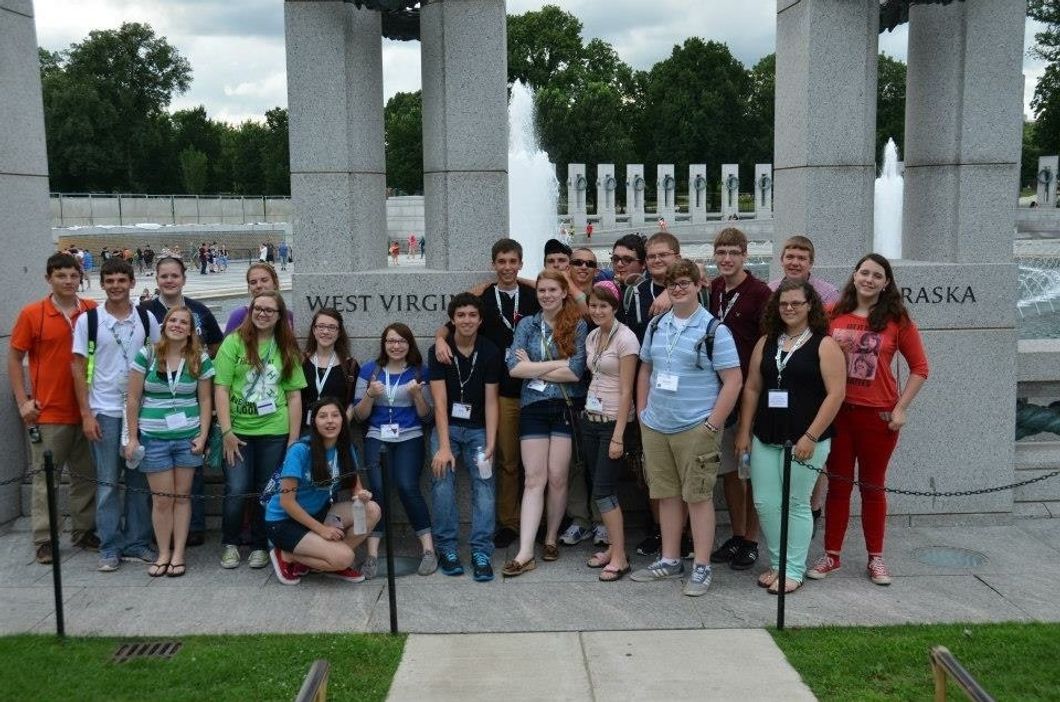What is 4-H?
It is a program that is over 100 years old. It has its roots in agriculture, but has grown over those 100+ years into something that changes lives and points people in the right direction.
A simple definition for something that, in my 12 years, has molded me into the person—nay, the human—I am today.
The 4-H title says it all. There are 4 Hs that the program teaches you from the ages of nine to twenty-one.
The first of which is the Head:
I pledge my Head to clearer thinking…
4-H has taught me critical thinking in many areas.
I began to think not just of myself, but of others, and how what I was doing would affect them. I learned to stay focused on a common goal to help those in need. I learned to trust those around me. I became a someone who knows right from wrong. I learned how everyone is different and should not be thought of as such, but should be accepted for who they really are.
Next is the Heart:
I pledge my Heart to greater loyalty…
4-H taught me to believe in myself but also to care for others.
I learned that it was OK to cry. I was able to develop my character by learning from those that came before me and those around me. I learned that a smile or a hug could be the beacon of hope for anyone. I learned confidence by speaking to groups and by being given responsibility.
After that, come the Hands:
I pledge my Hands to larger service…
4-H taught me that I am not the only person in our world that needs help. I learned that no matter what I had, I could give to others. It taught me that the same smile and hug could change so many different things for one or more people. I learned that I could lead others to help those in need. I learned that service wasn't just about the people I interact with, but that I could help my world—whether it was picking up trash along the road or teaching and learning my community's history!
Lastly, it teaches you about the Health:
I pledge my Health to better living for my club, my community, and my world…
I learned better eating habits. I learned to maintain a healthy lifestyle. I learned how to be a symbol of healthy living. I was taught to be active, drink water, and to still live my life to the fullest. Life wasn't just about guilty pleasures, it was about making the best better!
These four ideas make up the 4-H pledge that is taught to the youngest of 4-H-ers.
I'll be honest—when I was a younger member, I didn't care about meetings, writing cards to nursing homes, or really even saying the pledge. However, around the age of 13, I began to put together the puzzle. It was about me... But it wasn't. I helped serve food at dinners, not just because it was fun, but to help the community. My club would pick up garbage from my curvy, country road twice a year. It was freezing outside, and all of us—even the volunteer leaders—looked like oompa-loompas carrying trash bags! But none of us cared! We were out there, laughing and singing songs! We were cleaning our road and having fun while we were doing it.
The next thing for me was 4-H camp. It's a once-a-year event that lasts a week. It's fun and develops skills, whether it be through daily classes or by tribal leadership.
That's right, I said TRIBAL leadership! A 4-H camp is split into five groups: the Mingos, Cherokees, Delawares, Senecas, and Bigfeet. Each tribe—except the Bigfoot tribe—is made up of campers of all different ages, ranging from nine to eighteen. (Other camps are ages nine to twenty-one.) The Bigfeet are volunteer counselors who teach classes, stay in cabins, and make the week go by smoothly for the campers.
Each tribe has, as previously mentioned, tribal leadership. These are the Chiefs, Sagamores, and Senior Braves. Basically, they are the first, second, and third in command, respectively. This is where I began to see 4-H as more than just project books, farm animals, and dumb songs.
Chiefs were the leaders of their tribe. The Chief had to make sure that everyone was on task—they were to allow kids to participate, but make sure everyone was involved. Chiefs were once that nine-year-old who had never done anything like 4-H Camp before. Being a Chief is their time to show everyone what 4-H is all about, because, like me, they thought it was much simpler than it really is.
The skills I learned at camp (as both a camper and as tribal leadership) would change who I was outside of camp. I was diligent at school. Often, I would be able to get my work done and have time for other activities like hanging out with friends, helping my parents and grandparents, or, you know, having a girlfriend.
There are so many more things that I could tell you or show you about 4-H, but I don't have the time to. I wish that everyone could find out more for themselves.








































